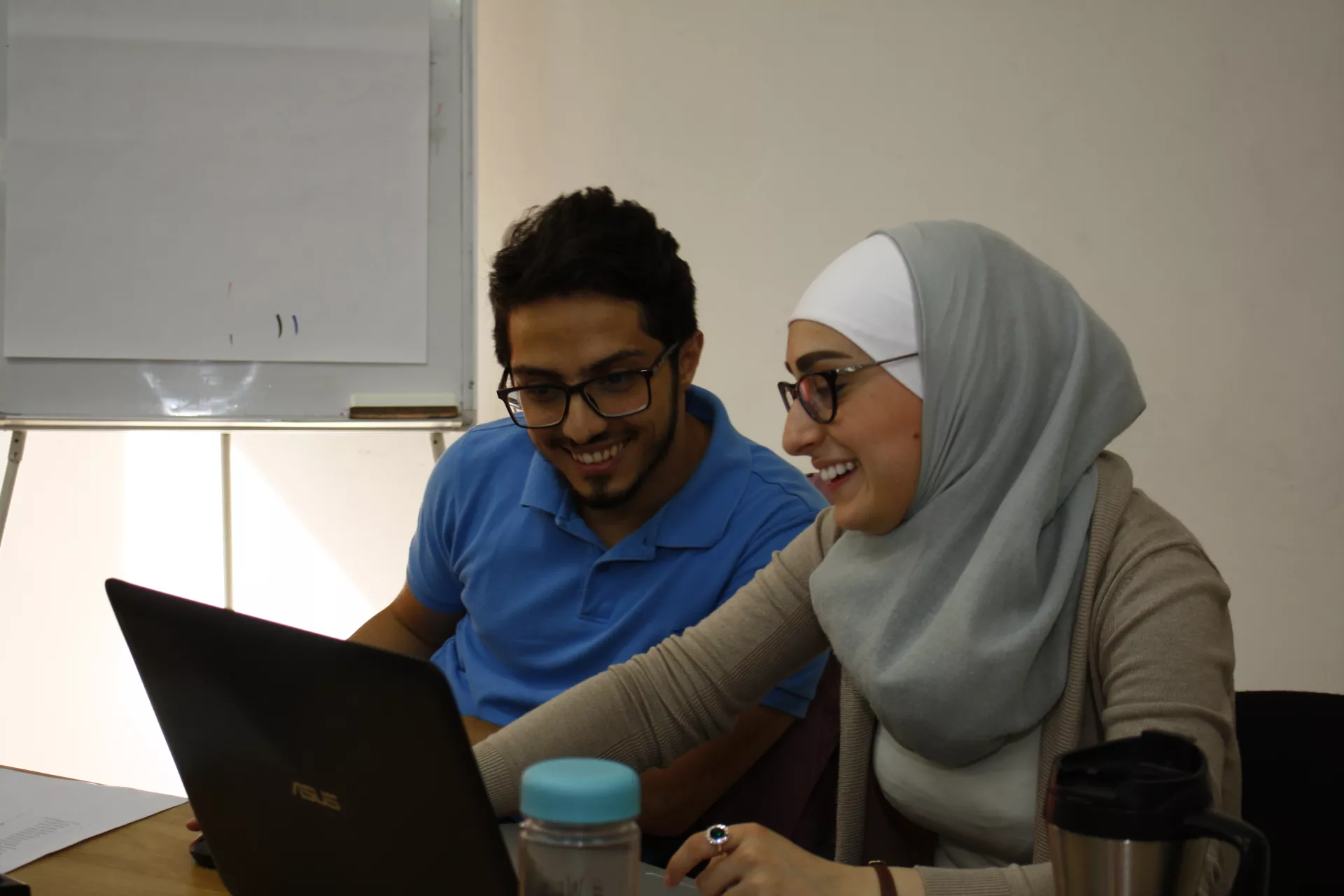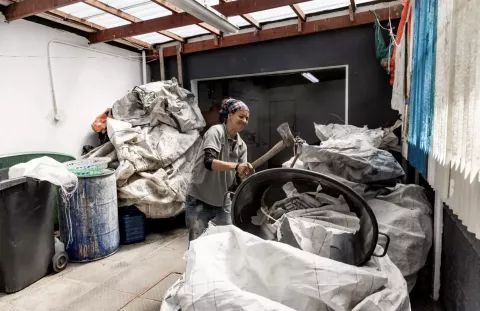Technology and access to digital platforms are critical tools for girls wanting to join ICT industry
A youth-led initiative born from the heart of Damascus, Syria leads move to make technology more inclusive to girls.

Salam Al-Nukta, 26, from the Syrian Arab Republic is an entrepreneur, startup enthusiast, passionate traveler and a motivated ChangeMaker.
DAMASCUS, Syria – While the whole world is in a lockdown due to disruptions brought by COVID-19, ChangeMakers, a youth-led initiative born from the heart of Damascus is leading the move to make technology more inclusive to girls. With the global pandemic is changing the way we live, study and socially interact with one another, education must not be jeopardized and access to quality education for all must be non-negotiable. On the occasion of the International Girls in ICT Day, which more than 170 countries have declared to raise awareness on the importance of girls' involvement in technology, ChangeMakers is responding to the rapid changes due to the coronavirus by offering free online courses on Artificial Intelligence via simple tools, such as Facebook.
As Technology Wizard Joud Khattab from the ChangeMakers stated, more young people are having access to social media and we want them to use their time more efficiently during these tough times.
In 2016, ChangeMakers was founded aiming to empower young people with technology as a tool for innovation and making change. ChangeMakers was inspired by the small numbers of girls joining STEM-based education pathways. It aimed to mainly reduce the gender gap in the tech field in Syria by bringing together both young boys and girls to learn about programming in one room.
Eyad Al-Khayat, co-founder of ChangeMakers, said, “We wanted to send the message that boys and girls can do it without discrimination. Technology is not a boy thing only. It is a girl thing, too!"
While ChangeMakers was thriving in Syria, we realized that highlighting inspiring role models is just as important as encouraging girls to learn programming through traditional ways. Moreover, families needed to understand that their girls are not at risk of giving up their social lives or growing up lonely if they pursue education and careers in ICT.
We must recognize the valuable contributions made by girls in information and communication technology, and encourage and empower them to take up STEM-based education in pursuit of a future career in ICT. However, this is much more feasible when we work to highlight and share the stories of pioneering women as inspiring role models who contributed significantly to the world of innovative communication technologies.
In Syria, like many other places in the world, girls are more vulnerable to stigma and are raised to become more attentive to what people think about them. Rahaf Salti, leading programming coach at ChangeMakers and an inspiring role model, said, “I joined ChangeMakers because I wanted to inspire girls to consider computer science as a future career. When I was younger, no one told me that I can be innovative and make a change. Today, I want girls to know that it is their decision to be capable and innovative.”
We always ask children what they want to be. If a girl chooses a simple career or not a career at all, we praise her for her modest ambitions because it fits societal norms. If a boy says he wants to become the next president or a programmer, we support and provide him with the necessary tools. In an unequal world, like today’s, we want to praise both girls and boys to become what they want, provide them with equal tools and opportunities, and allow their ambitions to be equally high. Technology and access to digital platforms is one of these tools.




